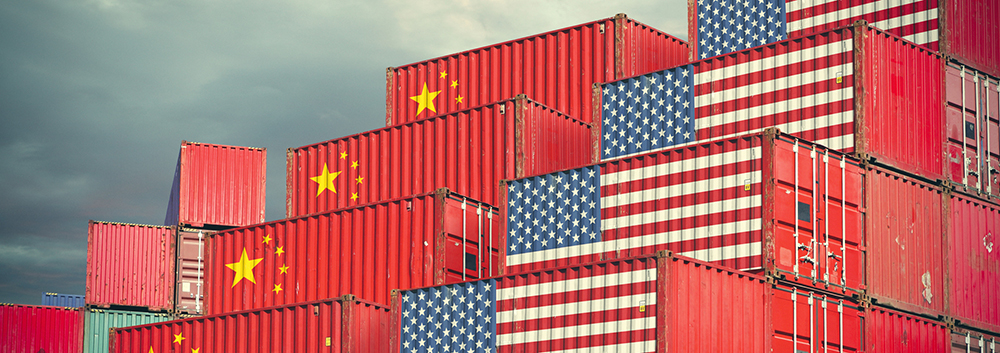Oil Tariffs Are Here – How Will They Impact Your Business

Oil Tariffs
China Recently Placed 25% Oil Tariffs on U.S. Oil Products
In response the the $16 billion in tariffs that President Donald Trump placed on Chinese imports, the People’s Republic is responding with a 25% tariff to be placed on U.S. goods – most notably, oil tariffs. Despite talks between U.S. and Chinese officials aiming to put an end to the issue, according to S&P Global Platts, the list of American exports now includes oil and coal for the first time in history. The retaliatory effort will no doubt be impacting the cost of both crude oil and liquified natural gas (LNG) over the coming weeks and months, along with other products.
How Oil Is Being Hit
According to an OilPrice.com piece, “Chinese importers have already started reducing their purchases of U.S. oil products: in May, oil product exports to China hit a 10-month low at 141,000 bpd, with LPG exports in particular dropping to 52,000 bpd—the lowest in 11 months. To compare, the average U.S. oil product export rate was 229,000 bpd in 2017 and 181,000 bpd a year earlier.” This 25% increase is the second blow to be exchanged between the U.S. and China, following President Trump’s decision to tackle the trade deficit between the two countries head on with what has been referred to as “radical” measures. According to S&P Global Platts, “Energy commodities including propane, butane, naphtha, jet fuel and coal are on the second list of $16 billion worth of US products that attract 25% additional tariffs from August 23, 12:01 pm Beijing time (0401 GMT), according to China’s Ministry of Commerce announcement on August 8.”
Let the Oil Tariffs Game Begin
As tariffs continue to be exchanged between the two countries since April 2018, the economic situation in China may be a deciding factor in favor of the U.S., with a decrease in the current strength of the Yuan, slowed economic growth in China and decreased consumer confidence. The first round of tariffs applied to Chinese goods happened on July 6th, with China immediately retaliating with a 25% tariff on US imports that included motor vehicles and agricultural commodities such as soybean products. The third round is scheduled to roll out August 30th, representing US$200 billion in Chinese goods.
Oil and Gas Flows Decrease
According to the report by S&P Global, “Numbers show the steady decline in US-China petroleum flows. The US exported 141,000 b/d of petroleum products to China in May, a 10-month low, according to US Energy Information Administration data. These exports had averaged 229,000 b/d in 2017 and 181,000 b/d in 2016. US LPG exports to China fell to an 11-month low of 52,000 b/d in May. US LPG exports averaged 147,000 b/d in 2017 and 115,000 b/d in 2016, the data showed.”
Economists Weigh In on the Impact of Oil Tariffs
With trade talks getting the two countries seemingly nowhere, economists fear that escalation is inevitable. The effects of the ongoing and escalating trade war will likely have a far-reaching impact on global trade. According to a recent CBS news article, “The trade war now stands at $50 billion worth of goods on each side.” Says Jacob Kikegaard, a senior fellow at the Peterson Institute for International Economics, “People will start to feel the effects of these things and the likely Chinese retaliation, which will affect virtually all U.S. exports to China.”
What Does This Mean to You and Your Business
As a result of these escalating tactics, American businesses could be left holding the short end of the stick, with goods-producing businesses caught in the middle, absorbing the economic brunt. Many, if not all American industries rely on imported parts, components and materials from China, and with imposed tariffs, the cost of these essential goods will be going up, impacting the cost of production and operation. Economists worry that the tariffs will not only effect the cost of products, but as a way of compensation, jobs as well. In the coming months, businesses may be forced to enact layoffs and possible closures as a way of cost savings in an effort to weather the trade war tides.
Contact an SCL Consultant Today
In a wide range of industrial sectors, SCL is committed to being the number one logistics and solutions provider for the products that protect and optimize the machines that keep our country moving. We pride ourselves on remaining at the forefront of industry trends and technological innovations, and as the market continues to evolve, we are committed to providing extensive product and industry knowledge and total performance satisfaction for our customers. For information on how we can assist your fleet in choosing the optimal products at a competitive price, contact an SCL consultant today.
